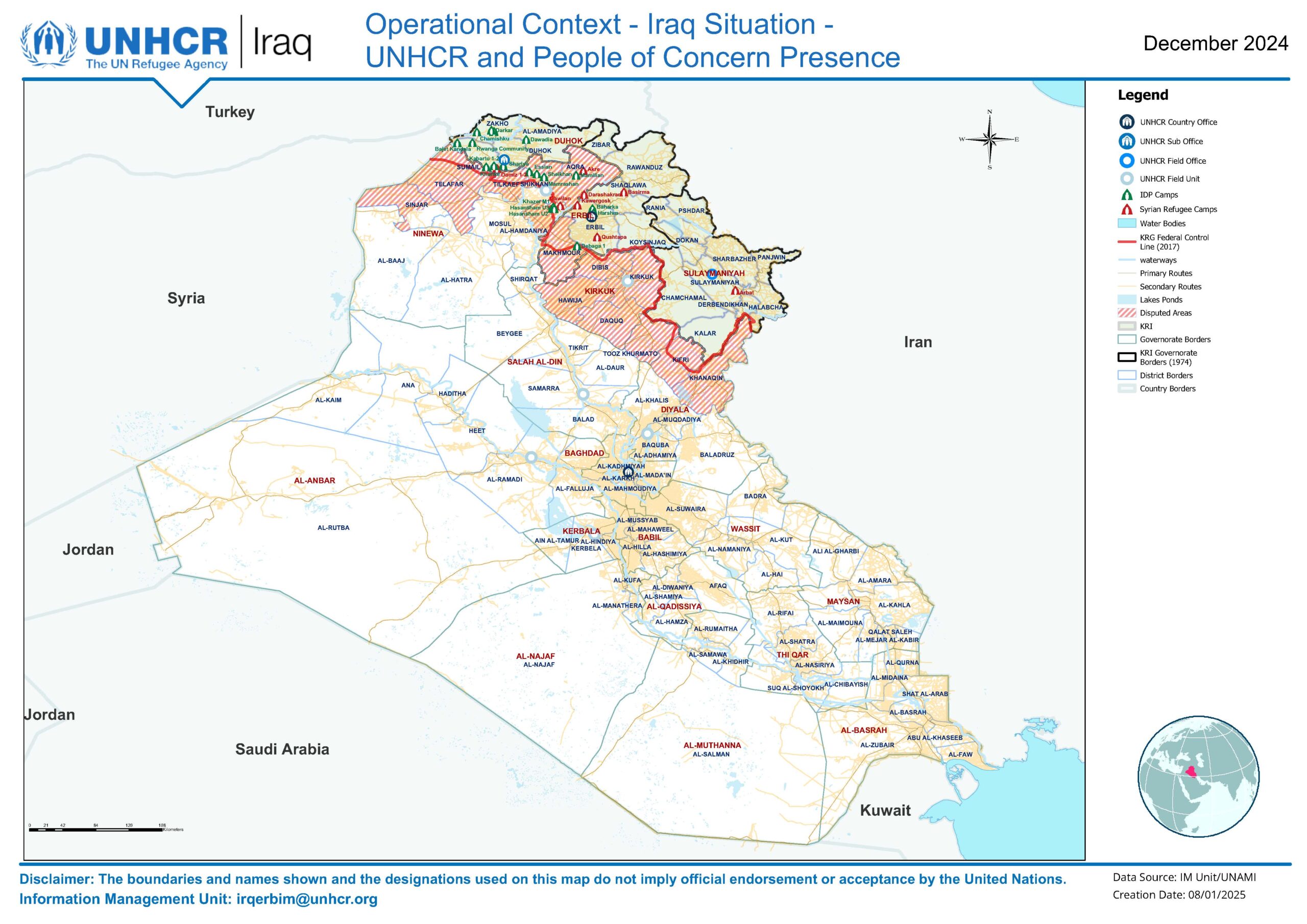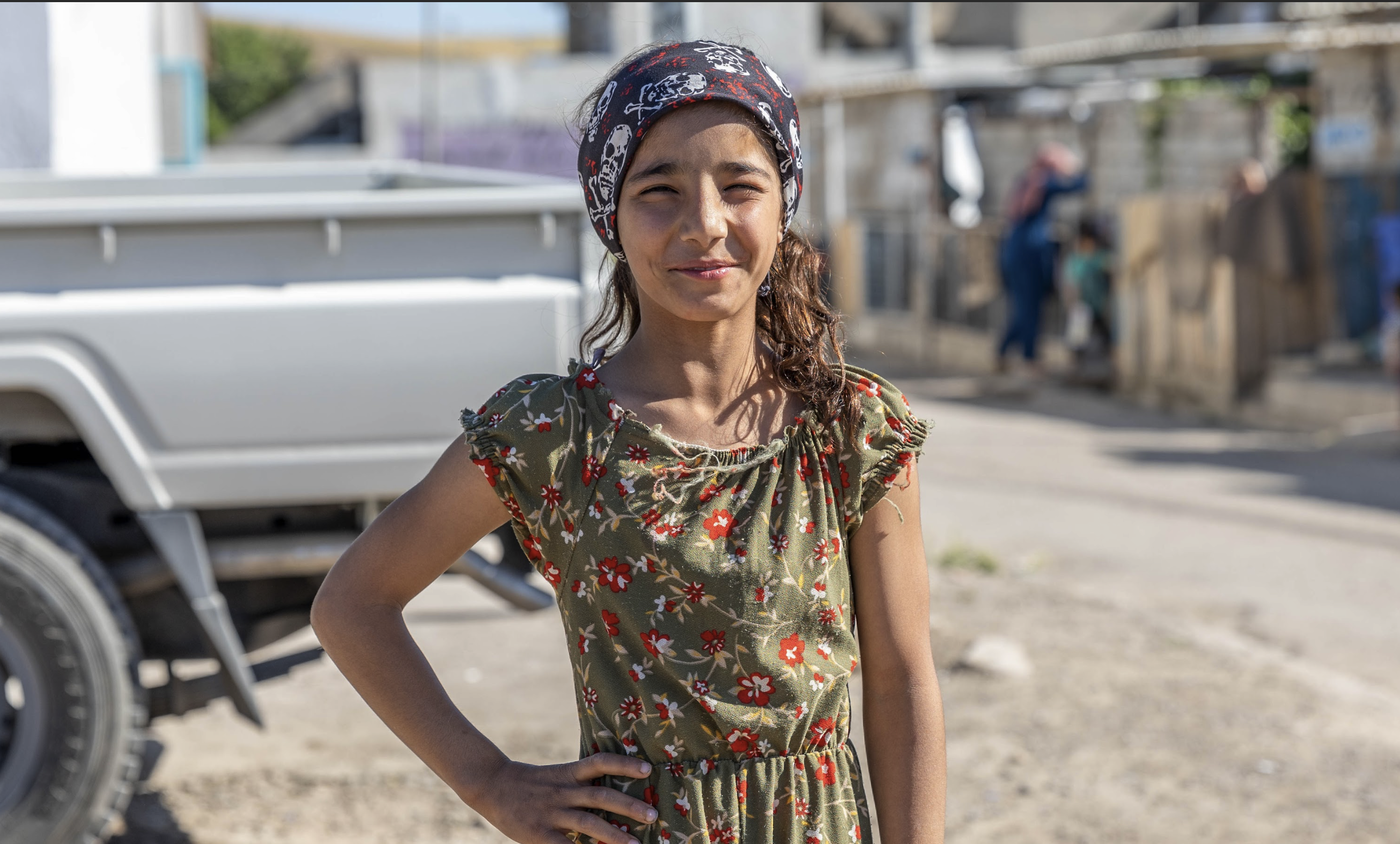UNHCR has been operational in Iraq since the 1990s, supporting refugees, asylum seekers, internally displaced people, stateless persons, other forcibly displaced people and Iraqi host communities.
Iraq is currently at a turning point, leaving behind the effects of three decades of political turmoil and armed conflicts that deeply impacted its people. Since the end of large-scale military operations in 2017, Iraq has been experiencing relative stability and advancing towards sustainable development. This notwithstanding, the country still faces protracted humanitarian and development needs and a fragile security situation in parts of the country.
As of December 2024, Iraq generously hosted over 338,000 refugees and asylum-seekers, 85% of whom are Syrians and live in the Kurdistan Region of Iraq. Among them, 73% of refugees live in urban areas and 65% of refugees are women and children under 18.

Iraq also has over 1 million internally displaced persons (IDPs). While the majority live in private accommodation in urban settings or informal settlements across the country, as of end December 2024, 109,000 live in 21 IDP camps in the Kurdistan Region of Iraq. In early 2024, the Government of Iraq announced its intent to close the remaining IDPs camps in the Kurdistan Region of Iraq. While many IDPs hope to return to their homes at some point, many may be unable or unwilling to do so because of their specific profiles or the situation in their areas of origin. UNHCR supports closure of camps, as long as solutions are made available to IDPs and decisions are made on a voluntary and well-informed basis.
In 2022 UNHCR transitioned from a purely humanitarian response to supporting development approaches, in areas where opportunities were available. In UNHCR’s work in Iraq aims at contributing to a situation in which forcibly displaced populations and stateless persons in Iraq are better protected and have full access to quality basic and protection services in public systems as well as access to economic opportunities.

UNHCR globally
UNHCR, the United Nations High Commissioner for Refugees (or the UN Refugee Agency), is a global organization dedicated to saving lives, protecting rights and building a better future for refugees, forcibly displaced communities and stateless people.
We work to ensure that everybody has the right to seek asylum and find safe refuge, having fled violence, persecution, war or disaster at home.
Since 1950, we have faced multiple crises on multiple continents, and provided vital assistance to refugees, asylum-seekers, internally displaced, returnees and stateless people, many of whom have nobody left to turn to.
